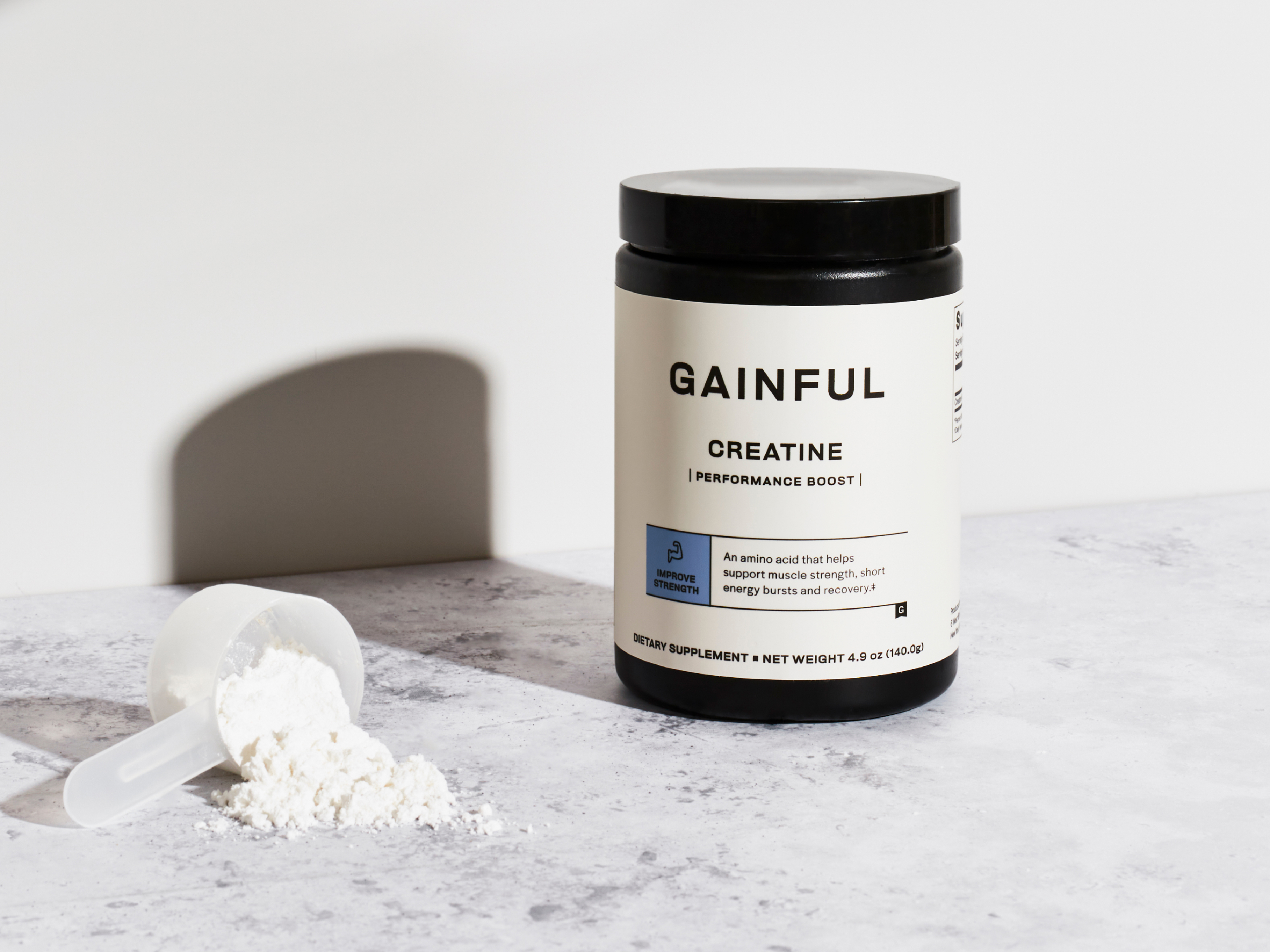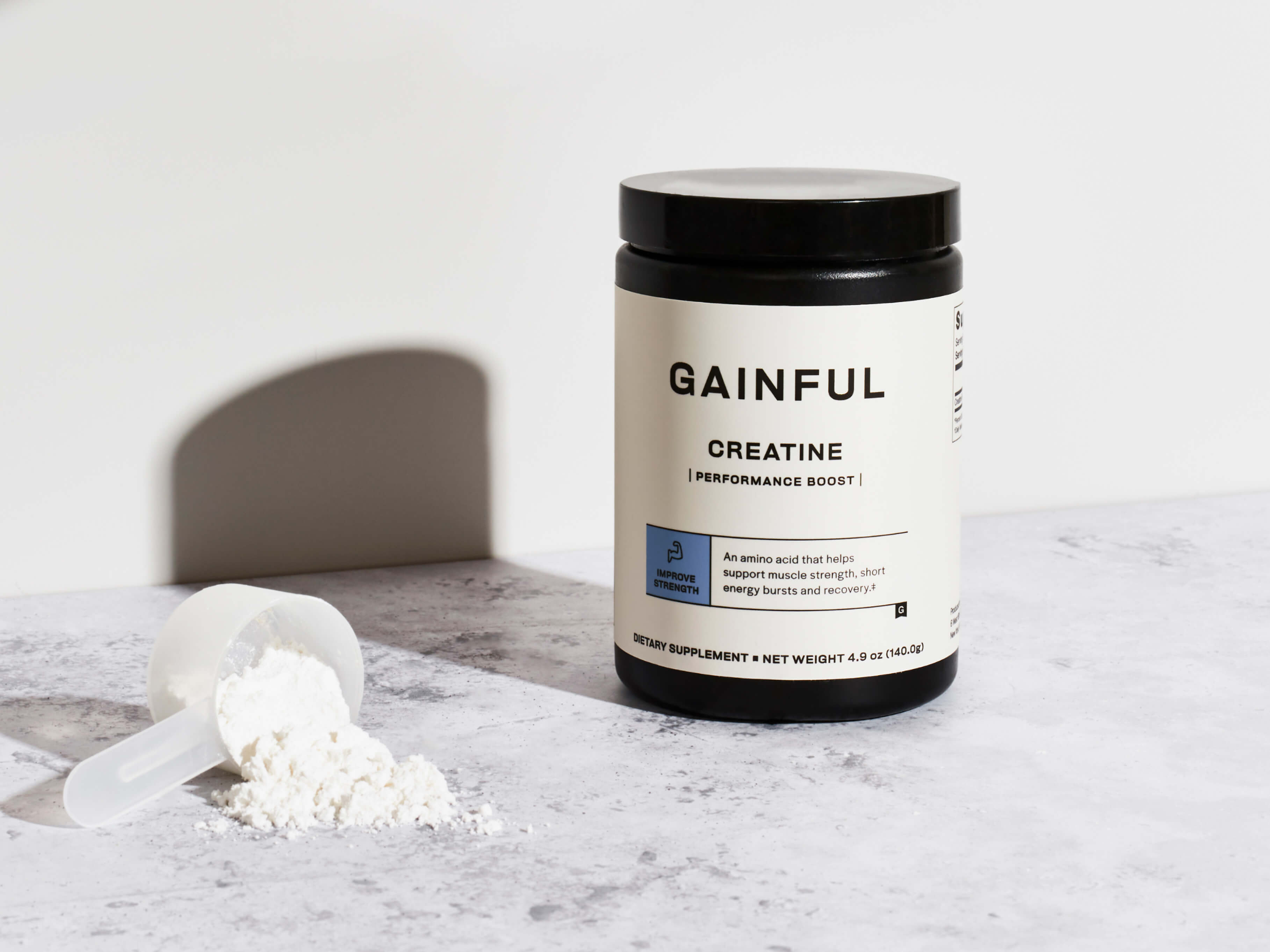Home /
How Long Does It Take for Creatine To Work?

How Long Does It Take for Creatine To Work?

How do we make the most out of our time at the gym?
As much as some of us would like to live at the gym, the reality is that our time is limited when it comes to reaching our goals. Making the most out of every moment is key to achieving our fitness goals — that is where supplements like creatine make an impact.
Getting our reps in at the gym, improving times on a run, or otherwise working to stay active during a busy schedule can be a challenge. Building a diet that will deliver on our efforts is where real changes are made.
So in order to make the best of our workout time, getting the right supplements and knowing how to use them best is critical. To maximize the muscle-building properties of creatine, for example, knowing how long it takes to work gives you more control over your schedule.
No matter what your fitness level is, you have likely heard of creatine in some context — but if not, that’s okay, too. We’ll explain.
What is creatine really?
Even some veteran gym-goers aren’t totally sure what creatine is. Its usage for better performance and muscle-building results is well-known, but getting a more profound knowledge of it only makes our time working out even more worthwhile.
Knowing more about creatine, when it kicks in, and how it works makes you a more informed, effective athlete.
Creatine can maximize results for people of all fitness levels by supporting strength, energy, and recovery. If you are looking to build or maintain muscle and reduce your time spent in recovery, creatine just might be the thing for you.
What Is Creatine?
Creatine is an amino acid, a chemical building block of the human body. As an amino acid, it’s a foundational component of our bodies, especially muscles. Creatine is generally found in our muscles, though it is also present in our brain.
Our liver and pancreas naturally make about one gram of creatine on any given day. Beyond that, our creatine intake tends to come from red meat and seafood, two protein-heavy foods. However, getting creatine through food or from what our body produces pales compared to the amount of creatine we can get from supplements.
It’s among some of the safest, most well-studied supplements, and it’s become a mainstay in pre-workout supplements or taken just on its own.
Our Personalized Pre-Workout gives you the option to include creatine and other science-backed ingredients in your personalized formula. Personalized Pre-Workout has the following ingredient options:
- Creatine for optimal muscle strength and performance
- BCAAs to aid with muscle growth and recovery
- Beta Alanine to support your training intensity
- L-Citrulline to support healthy circulation
- L-Theanine for increased focus
- Caffeine to reduce your perception of fatigue
Personalized Pre-Workout is also available without caffeine or creatine, according to your preferences.
Gainful also offers a Creatine Performance Boost to level up your performance.
How Does Creatine Work?
Creatine is stored in our muscles as a means of energy storage. When we exert ourselves, that energy is activated, propelling our exercise.
When not active, creatine is stored in the form of a chemical called phosphocreatine. With more stores of energy in your muscles in its phosphocreatine form, the body can create more ATP, which can help sustain strength training and other anaerobic exercises.
When you take creatine, you support your body’s hormone pathways and cell hydration, which can boost performance and help with muscle growth. Creatine may also aid in lowering myostatin levels, which may increase the growth potential.
This is just some of what’s happening in your body when you take supplemental creatine.
In a big picture sense, supplemental creatine is used to give your body the extra energy it needs to continue with high-intensity type exercises like those that use our muscles, helping us get results.
What Are the Benefits of Creatine?
There’s a reason creatine has become such a staple in many people’s exercise routines. It’s got a wide range of benefits that may help boost performance for your workouts and get you better results.
Boost Performance
One of the biggest reasons creatine is so popular is its usage as a performance booster during high-intensity, anaerobic exercises. Particularly with strength training exercises, athletes have gravitated towards creatine as a way to get them through their set.
Short-term creatine supplementation has been shown to increase the body’s total creatine content anywhere from 10-30%, on top of boosting phosphocreatine content by 10-40%.
This is the energy the body needs when you’re putting in reps or pushing yourself. As a result, short-term creatine supplementation has been shown to increase strength, powder, and sprint performance, helping your muscles contract and do their thing.
Get Greater Gains
Building muscle strength effectively is what our workout commitments are all about. That’s another popular reason people use creatine — to boost their muscle mass and get the most out of their workout.
The results are clear on that too. In a study that compared the muscle gains of participants who took creatine and those who didn’t, creatine supplements resulted in more muscle growth.
Aid in Recovery
Given its ability for powering and building muscle, researchers have looked into creatine’s role in muscle recovery after strenuous exercise or mild injury. After exercise, our recovery period is key to building muscle, which creatine is already shown to affect.
Getting in a good burn can often leave us feeling sore. While mild soreness can be a sign of an effective workout, prolonged soreness can keep us from getting back to the grind to keep up with our regimen.
Creatine may be able to help reduce recovery times, allowing us to get back to exercising sooner and with better results. Creatine may also help prevent damage to muscles while we exercise, so we don’t need to recover as much in the first place.
How Long Does Creatine Take To Work?
Now that you know how it works and what you’re getting out of it, how do you best implement creatine into your workout routine? How long does it take for the benefits of creatine to work?
As with working out, results aren’t immediate with creatine supplements. Consistency and dedication are key to seeing the benefits of supplemental creatine.
It can take anywhere from seven to 28 days to see the effects of creatine on your energy levels. That can all depend on how much creatine you have in your body when you start taking supplemental creatine and how rigorous your level of exercise is.
The more consistent you are, the more likely you are to see the results you want.
Does Creatine Loading Impact Effectiveness?
One common strategy of creatine supplementation is the creatine loading phase followed by a maintenance period. A loading phase is the period during which your body’s creatine stores are building, after which the maintenance doses ensure that those stores are maintained.
A typical loading phase might consist of taking around 20 to 25 grams of creatine each day, in small doses throughout the day, for five to seven days total. A maintenance period might look like three to five grams of creatine each day.
It is thought that this strategy may make results more attainable by quickly increasing the body’s stores of creatine and then working to maintain those stores, rather than taking very small doses of creatine over a much longer time period.
Creatine loading may help saturate your body’s creatine stores more quickly, but otherwise, it’s okay to stick to the maintenance dose and practice a little bit of patience. Some people may experience slight digestive issues while creatine loading due to the large amounts of creatine being consumed in a shot amount of time. It could take a process of trial and error to determine what works best for you.
When Should I Take Creatine?
As far as when to take it in order to gain its benefits, studies show that taking supplemental creative right around the time you exercise gets you the best results.
One study found that participants who took their creatine supplements around the time they exercised showed better results than those who took theirs further from their exercise period.
Creatine supplements require the same consistency and dedication as your efforts at the gym.
With its effects on our muscles and performance, creatine’s popularity makes sense. In as little as a week, you could start seeing more productive results from your efforts.
Creatine supplements could be the next step to help you level up your fitness. Fitness is all about commitment. From that first day you started working out regularly, you’ve been dedicating yourself to getting results out of your exercise, giving everything you’ve got to improve.
Supplements like creatine can help propel you forward in your mission to maximize your fitness potential.
How Can Gainful Help?
We are committed to delivering the most high quality products that will lead to the progress and results you are working towards.
At Gainful, we remove barriers to allow you to reach your stride. Every body is different. That’s why we formulate custom products tailored to each individual’s unique needs, like our Personalized Pre-Workout with Creatine and the Creatine Performance Boost.
Take our quiz and see what kind of supplements you need to perform at your best.
Sources:
Creatine and Creatine Supplements | Cleveland Clinic
Effects of creatine supplementation on performance and training adaptations | NCBI
International society of sports nutrition position stand: nutrient timing | PMC

